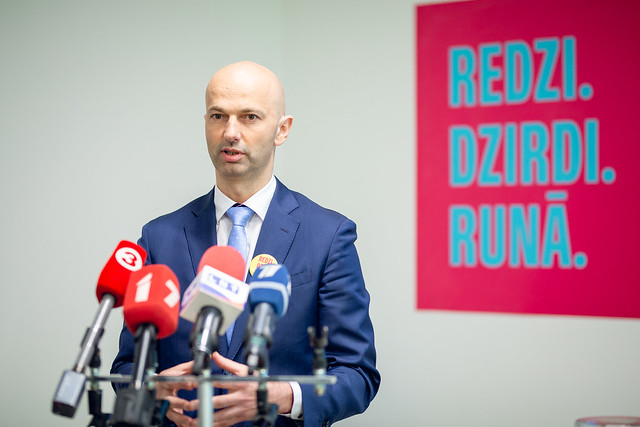On Tuesday 16 April, the campaign “See. Hear. Speak.” was launched, by opening the whistleblowers’ contact point at the State Chancellery with a view to raise awareness of the role of whistleblowing in the protection of public interests.
According to the survey,* nearly 70% of residents of Latvia are ready to get involved in improving the life in Latvia while more than half of population do not know what to do in case of violations at workplace that threaten the public interests. The Whistleblowing Law will come into force on 1 May, and will provide everyone with the opportunity to improve their working environment and take care of well-being of society, The law establishes a mechanism for informing the competent authorities and protecting the whistleblowers.
Silence is not always golden
According to the survey, the most frequently mentioned infringements, which could harm the public interests, are corruption (90%), waste of state money or property (87%) and omissions, negligence or abuse of official position (84%). However, the areas where illegal activities or inaction can have serious consequences for the whole of society include fraud, tax evasion, insufficient safety of construction, environmental and labour security, insufficient health and food safety, violations of human rights or public policy, infringements in the fields of public procurement and competition law. Whistleblowing is an instrument which, like in several other EU countries, will help the public to engage in the prevention of various infringements.
“We do nothing to improve the quality of life if we accept and remain silent, and somehow we are at risk of becoming co-responsible. People who see the activities threatening public interests often do not know what to do with this information, or are silent in fear of the potential consequences of dismissal, sanctions against themselves or relatives. Whistleblowing is a means for engaging in making the environment in Latvia more legal and better,” points out Inese Kušķe, expert of the Public Administration Policy Department of the State Chancellery and one of the authors of the Whistleblowing Law.
How to whistleblow?
- The Whistleblowing Law establishes that all institutions and companies with at least 50 employees introduce an internal whistleblowing system as of 1 May where to turn to in case of infringements of law at workplace.
- If there is no such a system at workplace or the person is not convinced that it will help, it is possible to directly inform the competent authorities, depending on the type of irregularity observed. Each responsible authority will have a contact person responsible for whistleblowing from 1 May. The list of contact persons at institutions and forms for whistleblowing will be available at: trauksmescelejs.lv from the date of the entry into force of the law on 1 May this year.
- If a person does not know how to proceed, assistance may be sought at the State Chancery's Contact Point.
- If, for objective reasons, the whistleblowing cannot be realized at work or at the competent authority, if no one is listening or nothing is changing for a long time, the general public may be informed through the media; however, this must be done in compliance with the law, stresses the State Chancellery.
Protection safeguards
“No one should be punished for a reasoned defence of public interests, so the law provides for both the protection of personal data and, if necessary, legal assistance provided by the State,” stresses expert of the Public Administration Policy Department of the State Chancellery Inese Kušķe.
38% of respondents have remained silent about offences at work for a variety of reasons, indicating among other things, their disbelief that something would change and their fear of losing job or experiencing other adverse consequences.
The Whistleblowing Law is aimed at protecting whistleblowers and their relatives from potential adverse effects of whistleblowing, by ensuring the protection of identity, the protection against adverse effects caused by whistleblowing, legal assistance provided by the State, exemption from payment of costs in civil proceedings and payment of the State fee in administrative proceedings, temporary protection in civil proceedings and administrative proceedings at court, exemption from legal liability, sufficient reimbursement of damages or personal injury, including moral hazards, and advice on the protection of their rights.
*Survey of the residents of Latvia (N=707), Norstat, April 2019.
Zane Ozola
Consultant of the Communication Department
Phone: 67082902
E-mail: zane.ozola@mk.gov.lv




